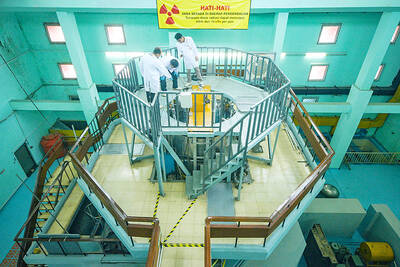Lawmakers rejected Haitian President Michel Martelly’s new choice for prime minister on Tuesday, blocking his efforts to install a government and move ahead with rebuilding a country shattered by last year’s earthquake.
Sixteen members of the 30-seat Haitian Senate voted to reject Bernard Gousse, a controversial lawyer and former justice minister. The vote capped a rancorous daylong debate in the upper house of the nation’s parliament.
It was the second rejection of Martelly’s choice for prime minister in less than two months and marked a messy start to his young presidency. His first choice for the prime minister’s post, economist and businessman Daniel Rouzier, was rejected by the lower house Chamber of Deputies on June 21.
Martelly, a former pop star who used the stage name “Sweet Micky,” came to office with no previous political experience. He was elected in March on populist promises to turn Haiti into a Caribbean success story after decades of crushing poverty and dictatorship.
The rejection of Gousse, who served in an interim government that came to power in the politically volatile nation in 2004, came as little surprise after 16 members of the Senate signed a recent public statement opposing his selection as prime minister.
The same 16 senators voted against Gousse on Tuesday night.
Gousse has been accused by critics of once leading a crackdown against backers of former Haitian president Jean-Bertrand Aristide, a popular former president seen as a champion of the poor.
The current parliament is dominated by supporters of former Haitian president Rene Preval, a one-time Aristide ally, and many still swear a loose allegiance to Aristide himself.
“We want to vote for a new government to address the population’s urgent problems,” said Haitian Senator Joseph Lambert, a leader of the INITE party, which controls parliament. “But we have to have a prime minister who is able to talk to all sectors and has not been accused of human rights violations.”
It was not immediately clear what Martelly might do next to gain the upper hand in his showdown with parliament. He has warned that a rejection of Gousse means it could take another six months to put a new government in place.

Four people jailed in the landmark Hong Kong national security trial of "47 democrats" accused of conspiracy to commit subversion were freed today after more than four years behind bars, the second group to be released in a month. Among those freed was long-time political and LGBTQ activist Jimmy Sham (岑子杰), who also led one of Hong Kong’s largest pro-democracy groups, the Civil Human Rights Front, which disbanded in 2021. "Let me spend some time with my family," Sham said after arriving at his home in the Kowloon district of Jordan. "I don’t know how to plan ahead because, to me, it feels

Poland is set to hold a presidential runoff election today between two candidates offering starkly different visions for the country’s future. The winner would succeed Polish President Andrzej Duda, a conservative who is finishing his second and final term. The outcome would determine whether Poland embraces a nationalist populist trajectory or pivots more fully toward liberal, pro-European policies. An exit poll by Ipsos would be released when polls close today at 9pm local time, with a margin of error of plus or minus 2 percentage points. Final results are expected tomorrow. Whoever wins can be expected to either help or hinder the

North Korea has detained another official over last week’s failed launch of a warship, which damaged the naval destroyer, state media reported yesterday. Pyongyang announced “a serious accident” at Wednesday last week’s launch ceremony, which crushed sections of the bottom of the new destroyer. North Korean leader Kim Jong-un called the mishap a “criminal act caused by absolute carelessness.” Ri Hyong-son, vice department director of the Munitions Industry Department of the Party Central Committee, was summoned and detained on Sunday, the Korean Central News Agency (KCNA) reported. He was “greatly responsible for the occurrence of the serious accident,” it said. Ri is the fourth person

SKEPTICAL: Given the challenges, which include waste disposal and potential domestic opposition, experts warn that the 2032 nuclear timeline is overambitious Indonesia is hoping going nuclear can help it meet soaring energy demand while taming emissions, but faces serious challenges to its goal of a first small modular reactor by 2032. Its first experiment with nuclear energy dates to February 1965, when then-Indonesian president Sukarno inaugurated a test reactor. Sixty years later, Southeast Asia’s largest economy has three research reactors, but no nuclear power plants for electricity. Abundant reserves of polluting coal have so far met the enormous archipelago’s energy needs, but “nuclear will be necessary to constrain the rise of and eventually reduce emissions,” said Philip Andrews-Speed, a senior research fellow at the